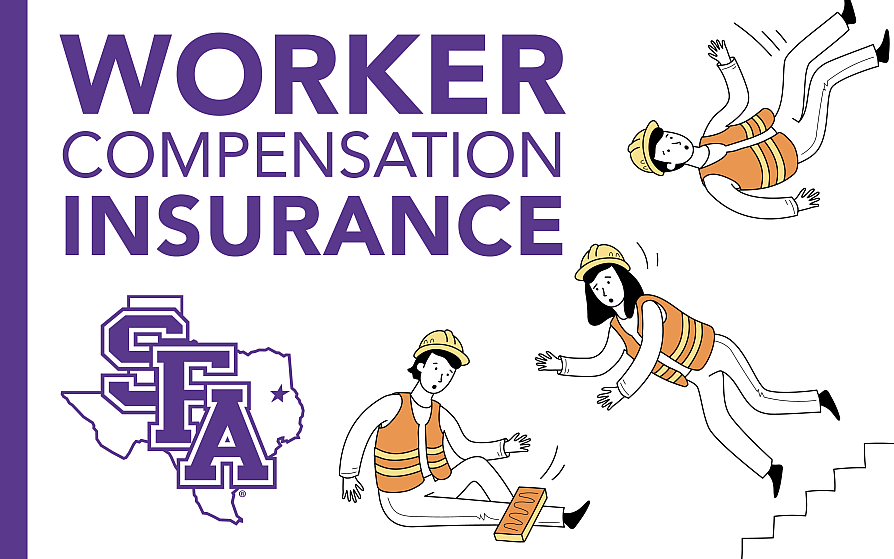Understanding Workers’ Compensation Insurance
Workers’ compensation insurance is a form of insurance mandated by law that provides financial benefits to employees who suffer work-related injuries or illnesses. This insurance serves a dual purpose: it protects the rights of injured workers while also shielding employers from potential lawsuits stemming from workplace accidents. In New York, the law requires most employers, including contractors, to carry this essential insurance coverage.
The primary intention of workers’ compensation insurance is to ensure that employees receive appropriate medical care and financial support when they are injured at work. This coverage can encompass a variety of expenses including medical bills, rehabilitation costs, and a portion of lost wages during the recovery period. For contractors, understanding whether they need workers’ compensation insurance in New York is crucial, as it not only provides safety net for their employees but also helps to maintain a compliant and responsible business operation.
The benefits of workers’ compensation extend beyond mere financial assistance. Employees who receive compensation can focus on their recovery without the added stress of mounting medical expenses. Additionally, contractors who provide this insurance can foster a more secure work environment, promoting the well-being of their workforce, thus enhancing productivity and morale. Moreover, having workers’ compensation insurance can advance a contractor’s reputation in the industry, as it is often viewed as an indication of a commitment to employee safety and health.
Without workers’ compensation insurance, contractors in New York might face severe legal and financial repercussions in the event of a workplace injury. This highlights the importance of understanding not only the requirement for coverage but also the myriad benefits it offers, affirming the crucial role that this insurance plays in the overall functioning of a business and the protection of its workforce.
Legal Requirements for Contractors in New York
In New York, the legal landscape surrounding workers’ compensation insurance mandates specific requirements for contractors. New York State laws are designed to protect workers and establish a framework that dictates when contractors need to secure workers’ compensation insurance. All contractors operating in the state are subject to these regulations, which aim to safeguard the rights of employees in the workplace.
According to New York State law, any contractor who has one or more employees is required to obtain workers’ compensation insurance. This requirement applies to both full-time and part-time employees, and the absence of insurance can lead to significant penalties and fines. Furthermore, the definition of a contractor encompasses various professions, including construction, landscaping, plumbing, and other service-oriented trades. The nature of the work performed does not exempt a contractor from obtaining coverage, so it is essential for all businesses to comply with these standards.
Additionally, the size of the workforce plays a crucial role in determining the need for insurance. For sole proprietors with no employees, workers’ compensation insurance is not mandatory; however, if they hire even a single employee, they must secure the appropriate coverage. Moreover, certain exceptions exist under specific circumstances, such as when hiring independent contractors or specific informal labor, yet these should be approached with caution and adequate legal advice. Engaging in work that poses a higher level of risk typically necessitates comprehensive coverage, reflecting the nature of the business.
Ultimately, understanding when contractors need workers’ compensation insurance in New York ensures compliance with state laws and enhances worker safety and support in the event of an injury. The legal framework serves to protect both the employer and the workforce, illustrating the importance of being informed about insurance requirements.
Types of Contractors and Their Insurance Needs
In New York, the classification of a contractor can significantly influence their insurance requirements, particularly when it comes to workers’ compensation. Understanding the different types of contractors—general contractors, subcontractors, and independent contractors—is essential for ensuring compliance with state laws and protecting against financial liabilities.
General contractors typically oversee construction projects from start to finish, managing various subcontractors and ensuring that everything runs smoothly. Due to their broad responsibilities, general contractors are often required to carry comprehensive workers’ compensation insurance. This type of policy protects both the contractor and their employees in the event of a workplace injury, meeting the legal obligations set forth by New York state law. Without appropriate coverage, general contractors not only risk financial liability but may also face penalties for non-compliance.
Subcontractors, who are hired by general contractors to perform specialized work, also have specific insurance needs. While they may be covered under the general contractor’s policy, it is crucial for subcontractors to obtain their own workers’ compensation insurance to protect themselves and their employees. This practice not only safeguards their business but also offers peace of mind that coverage is in place, particularly if an incident occurs while performing work on a job site. The nature of the subcontractor’s work can determine the extent of coverage needed, with higher-risk tasks likely requiring more comprehensive insurance.
Independent contractors operate differently, often classified as self-employed individuals. Although they are not always mandated to carry workers’ compensation insurance, obtaining a policy is advisable. This is because independent contractors face particular risks on the job that can result in significant financial burdens. Furthermore, possessing workers’ compensation insurance not only protects them in case of injuries but also enhances their credibility when seeking contracts or negotiating with employers.
Overall, the necessity for workers’ compensation insurance varies across contractor types in New York. Therefore, it is crucial for all contractors to assess their unique situation to ascertain the appropriate level of coverage needed to comply with state laws, safeguard their businesses, and protect their employees.
Consequences of Not Having Workers’ Compensation Insurance
In New York, contractors are required to maintain workers’ compensation insurance to ensure the protection of their employees in case of work-related injuries. Failure to adhere to this requirement can lead to severe legal and financial repercussions that can significantly impact a contractor’s business operations.
One of the primary consequences of not obtaining workers’ compensation insurance is the potential for legal penalties. New York state law mandates that all contractors must operate under this insurance. If a contractor is found to be in violation of these regulations, they may face substantial fines imposed by the New York State Workers’ Compensation Board. These fines can escalate quickly, leading to financial strain on a business that neglects to secure proper coverage.
Moreover, the absence of workers’ compensation insurance opens contractors up to lawsuits from injured employees. In the event of an on-the-job accident, employees who are not covered by workers’ compensation may pursue legal action against their employer for damages, including medical expenses, lost wages, and pain and suffering. The legal costs associated with defending against such lawsuits can be prohibitively high, further exacerbating the existing financial risks for contractors lacking insurance protection.
Additionally, contractors without workers’ compensation insurance may find it challenging to secure future contracts or partnerships. Many clients require proof of active insurance coverage before entering into a contractual agreement, and not having it can lead to lost business opportunities or damaged reputations. As a result, this situation may leave contractors vulnerable to significant economic fallout resulting from their decision to forgo essential coverage.
In light of these risks, it is critical for contractors to consider the implications of operating without workers’ compensation insurance, as it not only jeopardizes their business but also endangers the welfare of their workforce.
How to Obtain Workers’ Compensation Insurance
Obtaining workers’ compensation insurance is a crucial step for contractors operating in New York, as it not only fulfills legal requirements but also provides financial protection for both the employer and the employees. The process can seem daunting, but with a structured approach, it can be navigated smoothly.
Firstly, contractors need to assess their coverage needs. This involves evaluating the size of the workforce, the nature of the work being performed, and any specific risks associated with the job. Each of these factors can significantly influence the type of coverage required. It is advisable for contractors to thoroughly analyze their business operations to determine the appropriate levels of workers’ compensation insurance to safeguard their interests.
Once the coverage needs are established, the next step is to find a suitable insurance provider. Contractors can start by researching providers that specialize in offering workers’ compensation insurance in New York. This could include reviewing customer testimonials, seeking referrals from other professionals in the industry, or consulting online resources. Additionally, contractors should ensure that the selected provider is authorized to operate in New York and offers competitive rates while meeting state requirements.
After identifying potential insurers, contractors must navigate the application process. This generally includes submitting necessary documentation and disclosures about the business. During this stage, it is important to be transparent and thorough, as insufficient or inaccurate information can lead to delayed coverage or complications in claims. Furthermore, contractors should evaluate the costs associated with the workers’ compensation insurance by comparing quotes from different providers, considering any deductibles, and examining the coverage levels offered.
By following these steps, contractors can efficiently obtain workers’ compensation insurance in New York, ensuring they comply with legal obligations while protecting their workforce. This proactive approach can also pave the way for safer working conditions and better business practices.
Costs of Workers’ Compensation Insurance for Contractors
The cost of workers’ compensation insurance for contractors in New York is influenced by several key factors, which collectively determine the premium that a contractor is likely to pay. Understanding these variables can provide insights into how these costs are structured and what contractors can expect in terms of financial commitment.
One of the principal factors affecting the cost of workers’ compensation insurance is the contractor’s payroll. Insurers typically calculate premiums based on the total payroll amount, as higher payroll figures generally correspond to a greater risk of workplace injuries. Additionally, different occupations come with varying levels of risk associated with them. For example, contractors engaged in high-risk activities such as construction may face higher insurance costs compared to those in lower-risk fields.
Another critical factor is the contractor’s claims history. If a contractor has a significant number of past claims, this history may lead to increased premiums. Insurance companies often view a poor claims history as an indicator of potential future risks. Consequently, contractors with a clean record generally benefit from lower rates. Furthermore, New York has structured insurance rates in such a way that the state’s compensation board mandates certain minimum insurance requirements, which can also influence overall costs.
Overall, the intersection of payroll, type of work, and claims history will dictate how much contractors need to allocate for workers’ compensation insurance in New York. By understanding these elements, contractors can make informed decisions regarding their insurance needs and budget effectively for necessary expenses. Therefore, it is imperative for contractors to assess their specific situation to gauge their insurance costs accurately.
Exemptions and Special Cases
In New York, while most contractors are required to carry workers’ compensation insurance, there are specific exemptions and special cases that may apply. One notable exemption pertains to sole proprietors and partners in a partnership. These individuals are not mandated to obtain workers’ compensation insurance, provided that they do not employ others. However, it is important to note that if they choose to opt into coverage voluntarily, they can protect themselves against potential work-related injuries.
Additionally, certain small businesses may also be exempt from workers’ compensation requirements. For example, businesses with fewer than five employees are typically not required to secure this insurance. However, this exemption does not apply if the business holds any contracts that necessitate compliance with such insurance regulations. Thus, an in-depth review of individual business circumstances is crucial to determine insurance requirements accurately.
Partnerships and limited liability companies (LLCs) have their own unique considerations regarding workers’ compensation insurance. In a partnership, while general partners may not need coverage, any employees hired by the partnership must be covered under the insurance policy. For LLCs, the same rules apply; members of an LLC who do not take a salary may be exempt, but any hired employees necessitate full coverage. Ultimately, the structure of the business will play a critical role in determining the need for workers’ compensation insurance.
Contractors should also remain aware of coverage implications related to out-of-state work. Contractors undertaking jobs in New York must adhere to state regulations, regardless of the location of their home office or other work sites. Thus, understanding these exemptions and special cases is essential for compliance with workers’ compensation insurance laws in New York.
Frequently Asked Questions About Workers’ Compensation for Contractors
Understanding workers’ compensation insurance can be perplexing for contractors in New York. Many have questions regarding the necessity, coverage provisions, and specific instances where they might be unsure of their obligations. Here, we address some of the most frequently asked questions on this topic.
One common misconception is that all contractors automatically require workers’ compensation insurance. In New York, this is not entirely accurate. The requirement primarily depends on the number of employees a contractor has. If a contractor has one or more employees, workers’ compensation insurance is mandatory. Conversely, sole proprietors or independent contractors without employees aren’t legally mandated to obtain this insurance, although they might choose to for added protection.
Another frequently asked question pertains to who qualifies as an employee. In many situations, individuals performing work for a contractor may not be classified as employees, particularly if they operate as independent contractors or are part of a specialized agreement. Understanding the distinction is crucial, as it directly affects liability and insurance requirements. Additionally, contractors often inquire about coverage during off-site work. They should be aware that workers’ compensation insurance generally provides coverage for injuries that occur while employees are performing job-related duties, regardless of location.
Contractors may also worry about the implications of failing to maintain insurance coverage. In New York, not having the required workers’ compensation insurance can lead to hefty fines, legal issues, and increased liability. Furthermore, clients may require proof of coverage before awarding contracts, establishing workers’ compensation as a crucial element for project bids.
In conclusion, understanding the nuances of workers’ compensation insurance is vital for contractors in New York. Addressing these concerns helps ensure compliance with state laws, protects businesses from unforeseen circumstances, and provides necessary safeguards for employees. If further clarification is needed, consulting a qualified insurance professional is advisable.
Conclusion and Final Thoughts
In New York, the question of whether contractors need workers’ compensation insurance is not merely a matter of choice but a crucial legal requirement. As delineated throughout this discussion, New York state law mandates that most contractors obtain this type of insurance to protect their workers and themselves from financial liabilities arising from workplace injuries. Non-compliance could result in penalties and, more importantly, expose contractors to significant financial risks that could jeopardize their businesses.
It has been established that the primary purpose of workers’ compensation insurance is to provide vital support for injured workers, ensuring they receive necessary medical care and compensation for lost wages. This not only promotes a safer working environment but also fosters trust and stability in the relationship between contractors and their workforce. Furthermore, having workers’ compensation insurance can enhance a contractor’s reputation, making them more appealing to potential clients who value safety and security.
Contractors, regardless of their project size or specialization, must prioritize this coverage. It is advisable for contractors to consult with insurance professionals who can provide personalized advice tailored to their specific needs. Such guidance can help ensure they not only meet the legal requirements but also select the most suitable policy that offers adequate protection against potential risks associated with their operations.
In conclusion, understanding the necessity of workers’ compensation insurance in New York is imperative for contractors aiming to operate legally and ethically. By adequately protecting their workers and complying with state laws, contractors can reinforce their business stability while fostering a safe work environment. Therefore, it is prudent to take the necessary steps to secure proper insurance coverage, ensuring peace of mind and long-term success in the contracting field.
Read More:
- Understanding Insurance Policy Limits Disclosure in Oklahoma
- Does Your Homeowner Insurance Cover Your Vacation Rental?
- Understanding the Surge: Why Car Insurance Went Up in California
- Understanding How Commercial Property Insurance Rates Are Determined in Ohio
- Understanding Short-Term Health Insurance Coverage in Ohio



